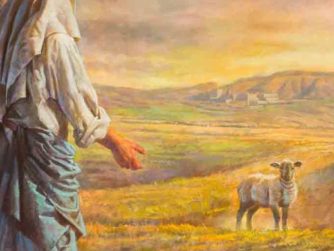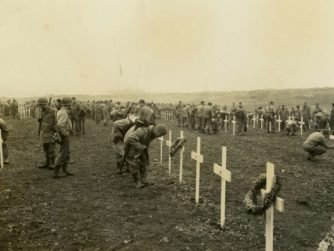One of the glorious heritage of the Church of the New Testament are the deep and glorious hymns the Holy Spirit has enabled saints to penned down over the years for the enjoyment and edification of His people. These hymns minister deeply to our souls helping us to delight, worship and re-affirm our faith in the Gospel. One of such hymn, though rarely song in today’s flippant Christendom, is the hymn “Jesus, Thy Blood and Righteousness”.
In 1739, when the Count Count Nicolaus was making a sea voyage from Saint Thomas, West Indies, he wrote this remarkable hymn. Although as a boy he was educated in pietistic teachings, he is said to have been converted by seeing the famous painting, Ecce Homo, which hangs in the Düsseldorf Gallery and pictures the bowed head of Christ, crowned with thorns. Perhaps he still cherished in his memory that vision of the Man of Sorrows, when in this hymn he wrote of the holy, meek, unspotted Lamb,
Who died for me, e’en me t’ atone.
Jesus, thy blood and righteousness
my beauty are, my glorious dress;
‘midst flaming worlds, in these arrayed,
with joy shall I lift up my head.
Bold shall I stand in thy great day;
for who aught to my charge shall lay?
Fully absolved through these I am
from sin and fear, from guilt and shame.
When from the dust of death I rise
to claim my mansion in the skies,
e’en then this shall be all my plea,
Jesus hath lived, hath died, for me.
Jesus, be endless praise to thee,
whose boundless mercy hath for me,
for me a full atonement made,
an everlasting ransom paid.
O let the dead now hear thy voice;
now bid thy banished ones rejoice;
their beauty this, their glorious dress,
Jesus, thy blood and righteousness.
About The Author
Zinzendorf, Count Nicolaus Ludwig, the founder of the religious community of Herrnhut and the apostle of the United Brethren, was born at Dresden May 26, 1700. It is not often that noble blood and worldly wealth are allied with true piety and missionary zeal. Such, however, was the case with Count Zinzendorf. Spener, the father of Pietism, was his godfather; and Franke, the founder of the famous Orphan House, in Halle, was for several years his tutor.
In 1731 Zinzendorf resigned all public duties and devoted himself to missionary work. He traveled extensively on the Continent, in Great Britain, and in America, preaching “Christ, and him crucified,” and organizing societies of Moravian brethren. John Wesley is said to have been under obligation to Zinzendorf for some ideas on singing, organization of classes, and Church government. Zinzendorf was the author of some two thousand hymns. Many of them are of little worth, but a few are very valuable, full of gospel sweetness and holy fervor. He died at Herrnhut May 6, 1760.








